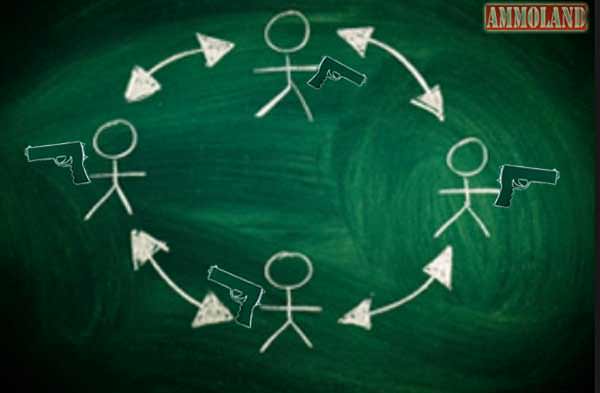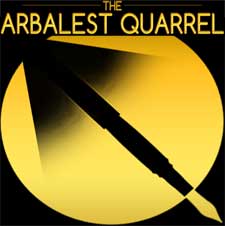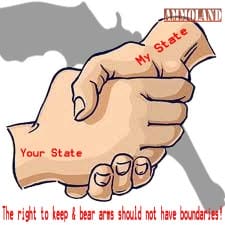

And, for man, the desire to survive is also a moral imperative. A threat to one’s survival activates the “fight or flight” response. If a person cannot reasonably flee from a threat to his or her survival, that person must, and will, and ought to fight for his or her survival.
And, if one must fight, no better protection exists than that provided by a firearm.Many Americans were brought up with firearms. They were taught how to use a firearm properly and safely. They are comfortable with firearms.
Firearms’ owners do not impose their will on others. But, by the same token, those Americans who are not comfortable possessing firearms should not prevent other Americans who wish to possess firearms from doing so.Other Americans are not. And that is fine. Those people who do not feel comfortable possessing firearms need not do so.

The Court made clear that the right to keep and bear arms is an individual right, unconnected with service in a militia, to be used for traditional lawful purposes such as self-defense.Now, since the Bill of Rights traditionally applied to the Federal Government, the question arose whether the Heller case also applies to the States. That question, too, was laid to rest in the 2010 McDonald case. The Supreme Court ruled that the individual right of self-defense applies to the States through the Fourteenth Amendment.
Unfortunately, many States undermine the clear import of these two U.S. Supreme Court cases by keeping in place restrictive and oppressive firearms’ laws and by focusing their efforts in creating ever more restrictive and oppressive firearms’ laws to confound and frustrate gun owners.To overcome obstacles posed by myriad, inconsistent firearms’ laws, some State Legislatures have created a mechanism by which a resident, who holds a valid concealed handgun carry permit or license as issued in one State, may legally carry a handgun in another State without fear of arrest. This mechanism is known as “reciprocity.”
State “concealed handgun carry” reciprocity is not difficult to understand. It works much like State motor vehicle license reciprocity.
Presently, 18 States do recognize the validity of unrestricted concealed handgun carry licenses issued by other States. Most States, unfortunately, do not. Recognition of unrestricted concealed handgun carry license reciprocity by all the States would help eliminate the problem of inconsistent gun laws existent between and among the States and, too, relieve a law-abiding American from the burden of acquiring and holding multiple concealed handgun licenses. This would do much to safeguard the Second Amendment right to keep and bear arms. Universal unrestricted concealed handgun license reciprocity among the States would overcome a host of obstacles to Americans’ exercise of their Second Amendment right to keep and bear arms.

Traveling across State lines, whether on business or for pleasure, should not create an either/or situation for an American citizen. But that, unfortunately, is what we see. The law-abiding American citizen must either forego the acquisition of a multiplicity of concealed handgun carry licenses thereby saving time, and money, and energy but at the cost of relinquishing the citizen’s right of self-defense; or that citizen must jump through hoops to first acquire and then constantly renew a plethora of concealed handgun carry licenses that serve best to protect his life, but at the cost of time, money, and energy necessary to acquire the licenses initially and then to retain them through time. Which one of these two options should he choose? Which one of these two options would you choose? Why should the law-abiding American citizen have to make a choice at all in view of the Second Amendment imperative?
Read the longer related article “A Road Trip With A Handgun: The Case For Universal State Reciprocity” here at Arbalest Quarrel : http://tiny.cc/ctup0xClearly, the law-abiding American citizen should not have to undergo a multitude of time-consuming, extraordinarily arduous, repetitious and invariably wasteful administrative processes in order to secure his or her safety through the best means available – namely that provided by a handgun.
About The Arbalest Quarrel
Arbalest Group created `The Arbalest Quarrel’ website for a special purpose. That purpose is to educate the American public about recent Federal and State firearms control legislation. No other website, to our knowledge, provides as deep an analysis or as thorough an analysis. Arbalest Group offers this information free.
www.arbalestquarrel.com



1 comment:
Ok, people, I gotta make a comment here.
li·cense
ˈlīs(ə)ns/
noun
noun: licence; plural noun: licences; noun: license; plural noun: licenses
1. a permit from an authority to own or use something, do a particular thing, or carry on a trade (especially in alcoholic beverages).
"a gun license"
synonyms: permit, certificate, document, documentation, authorization, warrant;
More certification, credentials;
pass, papers
"a driver's license"
formal or official permission to do something.
***********And also:
License
The permission granted by competent authority to exercise a certain privilege that, without such authorization, would constitute an illegal act, a Trespass or a tort. The certificate or the document itself that confers permission to engage in otherwise proscribed conduct.
So, from these two definitions, we can deduce that a concealed handgun *license* is simply permission to exercise a *privilege*. The constitution states that it is the *right* to keep and bear arms that should not be infringed. It does NOT say that the privilege to keep and bear arms . . . etc.
What does this mean? You have an INHERENT HUMAN RIGHT to protect yourself. Just as you have an INHERENT HUMAN RIGHT to feed yourself, protect yourself from the weather and to provide for your family. No matter how hard they try, it is a violation of your HUMAN RIGHTS to infringe your RIGHT to bear arms. Legislation taking away your HUMAN RIGHTS constitutes nothing more than pure slavery.
I recently read an article that listed the statute in Arkansas about constitutional carry. In arkansas, according to that statute, you can open carry if you want to. If you read the actual statute, it says that if you are a (and I am paraphrasing here) holder of a concealed carry permit (or license) that you must carry concealed. But, statutes are generally written in such a way that the inclusion of certain items is the exclusion of other items. So, in the sentence it says if you have a ccp, you must carry concealed.
By the very premise stated above about the inclusion and exclusion, if you do NOT hold a ccp, you can carry however you wish. By having the CCP, the statute applies to you. If you don't have one, the statute simply does NOT apply to you. The statute includes those that have a ccp. Because it does not specifically state anything about not having a ccp, all others are excluded from the statute.
Also, the second set of definitions states that a licence is basically "permission" to do something that would otherwise be "illegal". NOT UNLAWFUL, but illegal and there is a big difference.
Legal = statute, written and imposed by man.
Lawful = common law, commonn sense, inherent law, natural law, not written or imposed by man.
The license makes it against the *statute* (man's law) to have the gun without the permit.
Having no license, it is completely LAWFUL to have the gun, for protection, to provide food and whatever else you choose to use it for, under common law, of which the premise is: Do what you will so long as it doesn't damage another's property or infringe on another's rights.
So, when you "apply" for a "license" or "permit" to carry concealed, you are actually binding yourself to their statutory restrictions. Drive carefully!
JMHO - YMMV
DS
Post a Comment